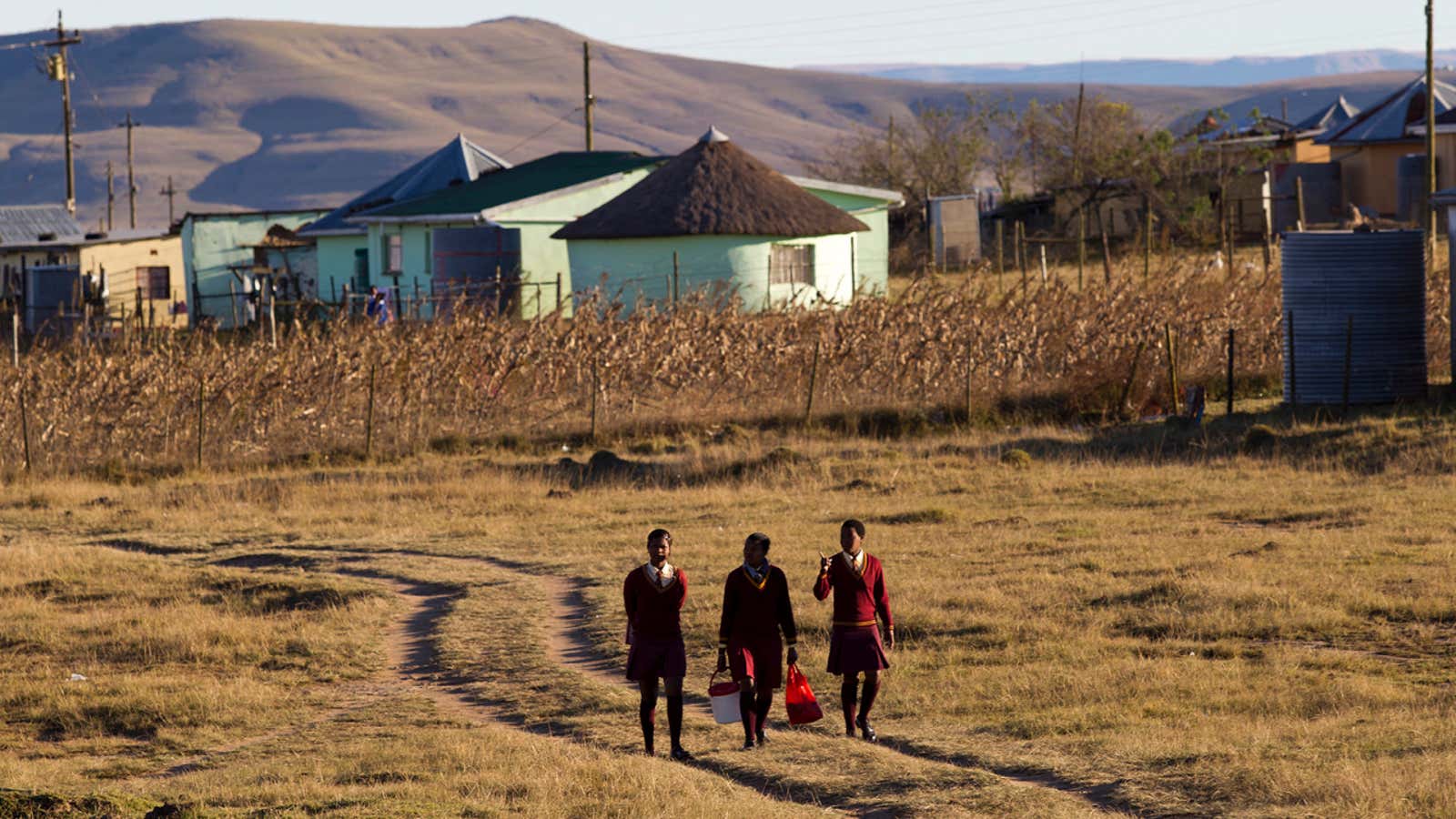Learning a language requires more than sheer enthusiasm, especially at the national level.
The South African government was one of the first in Africa to announce plans to integrate Mandarin Chinese into its public school curriculum, and since then others have followed. In December last year, Uganda announced that Mandarin would become a compulsory high school subject and in January, Kenya announced that by 2020, primary (elementary) school students would be able to choose Mandarin as a subject. Yet, as the South African example shows, teaching Mandarin takes effort.
South Africa announced in 2015 that it would introduce Mandarin, with the department of basic education arguing that learning another foreign language would help South African children compete in a shifting global economy. Immediately, researchers raised questions on why African languages were not similarly prioritized to build domestic capacity first. This was clearly also a diplomatic move to please South Africa’s largest trading partner, and was met with accusations of neocolonialism.
There was also the problem of cost. South Africa already spends 17% of its national budget on schoolchildren, according to Unicef (pdf), but that hasn’t been enough to fill apartheid’s backlog. Thousands of children never graduate high school, falling through those cracks. Schools in rural and mainly black areas still don’t have proper infrastructure, and nearly 4,000 schools still use pit toilets. Attempts to modernize education are not immune from South Africa’s social ills, as a newly opened high tech school was robbed of its laptops and tablets.
The plan to introduce Mandarin continues, nonetheless. In April 2016, basic education minister Angie Motshekga set the goal at 500 schools offering Mandarin in five years by 2021. In 2017, there were 53 schools that offered Mandarin in South Africa.
Mandarin is largely being introduced through the various Confucius Institutes, China’s international cultural centers similar to the British Council, the Goethe Institute and Alliance Française. The Confucius Institute at the University of Cape Town, for example, will dispatch a Mandarin teacher and textbooks to interested schools.
Soft power is clearly at play, but China is hardly the only country South Africa has such an agreement with. The department of basic education has arrangements with Japan, Korea, Cuba, Belgium, the US and others, although these focus on infrastructure and improving math and science. France included the promotion of language as part of its agreements and these were European languages already historically offered in local public schools.
Thanks to South Africa long history as a British colony English is the dominant language in South Africa’s education system.
China is about a century behind Britain and France in expanding its cultural influence in Africa, and is enthusiastically trying to catch up. Yet, as the South African example shows, Mandarin will come up against the same obstacles as every other subject.
Sign up to the Quartz Africa Weekly Brief here for news and analysis on African business, tech and innovation in your inbox
